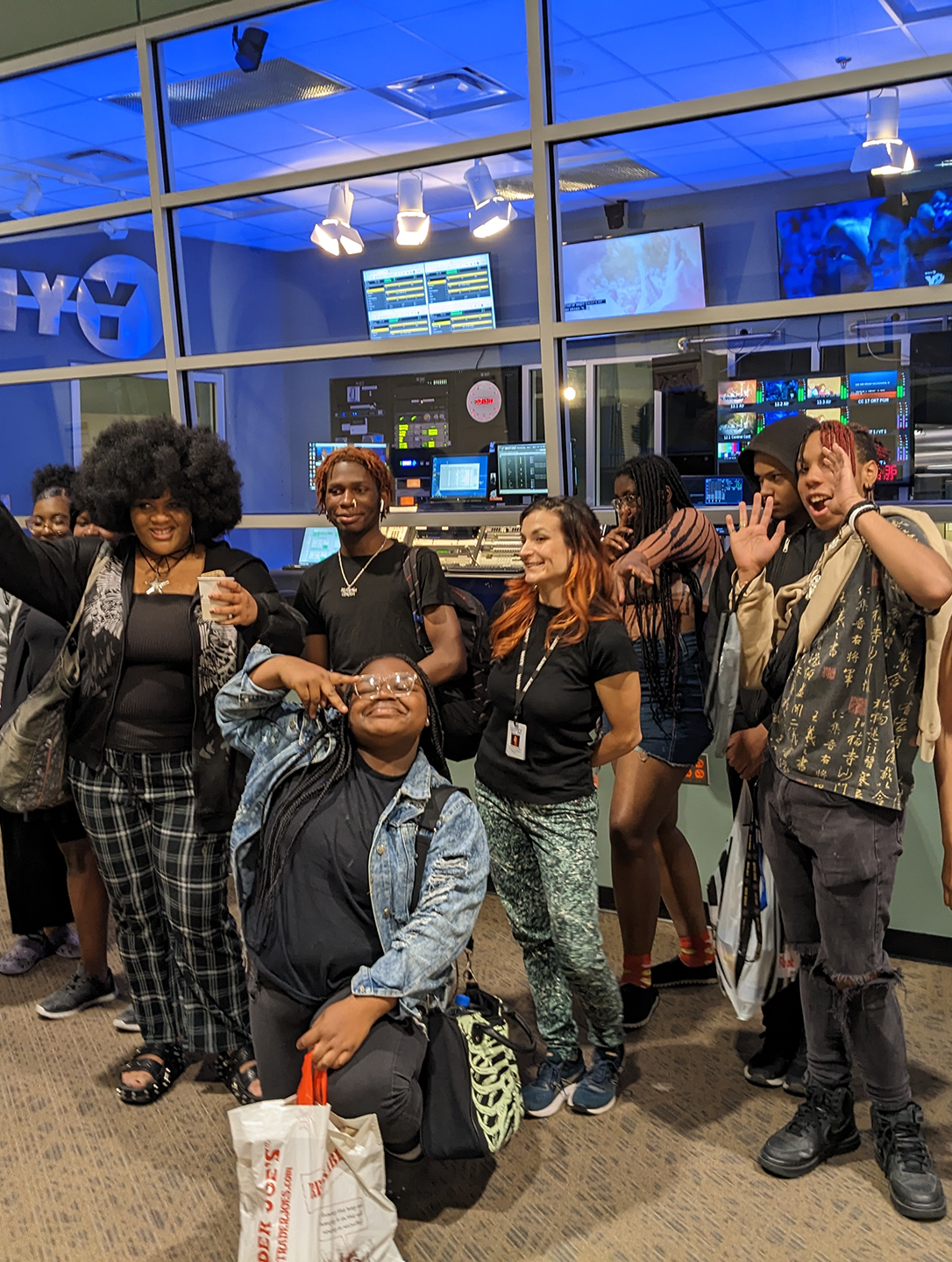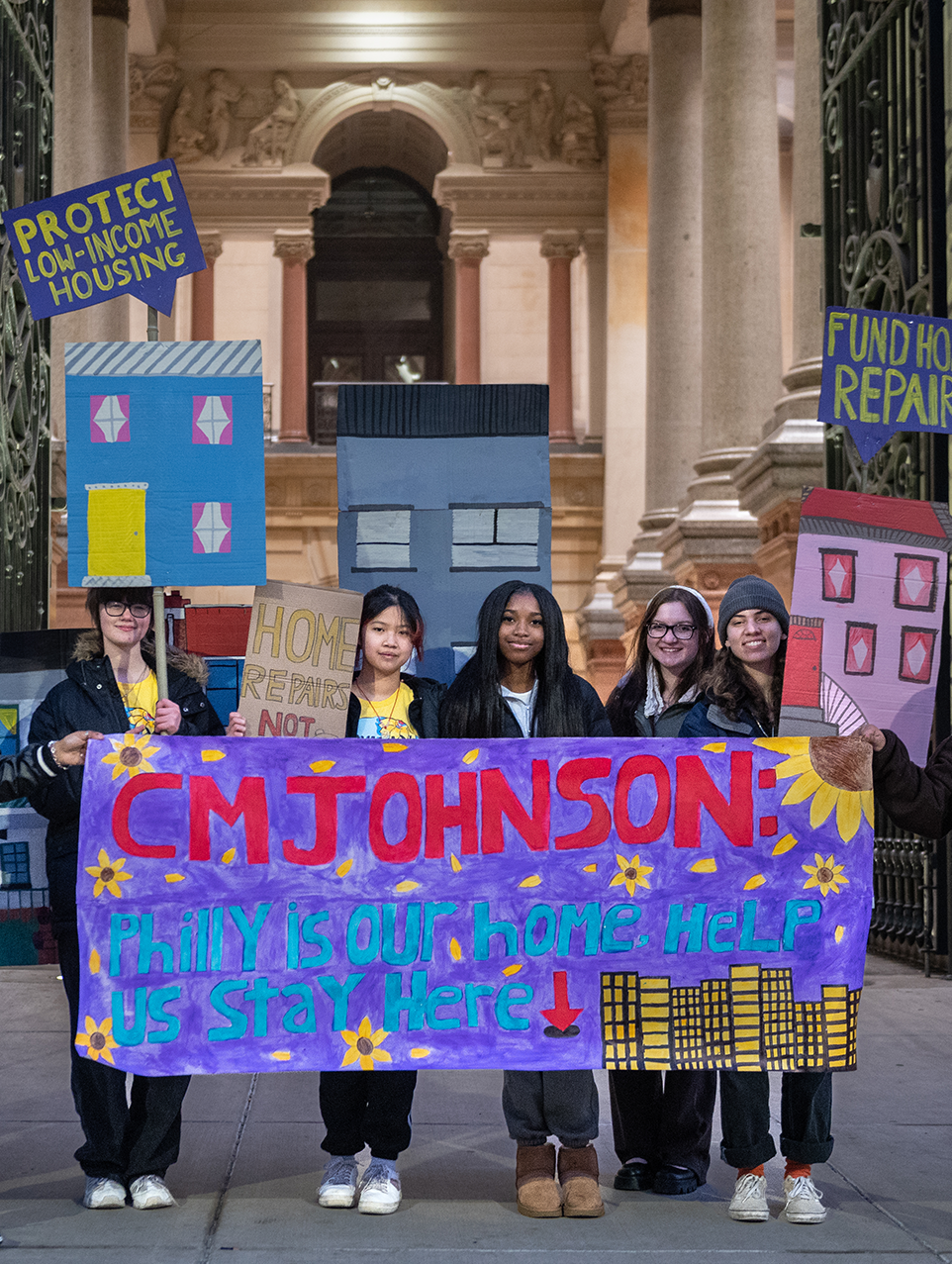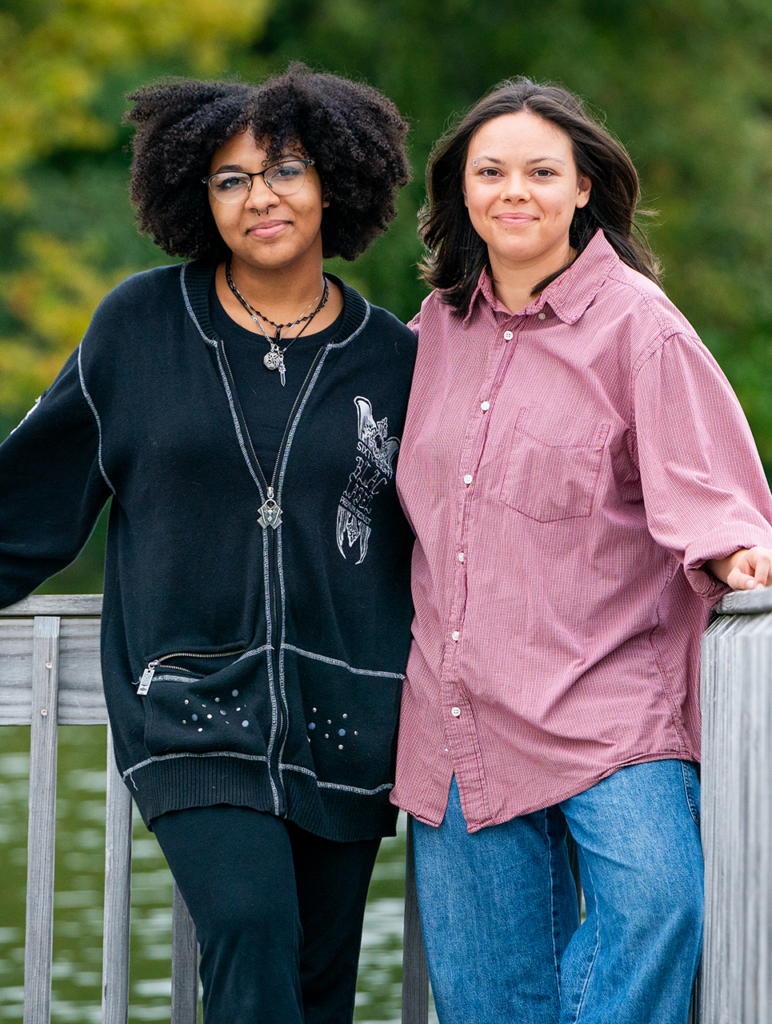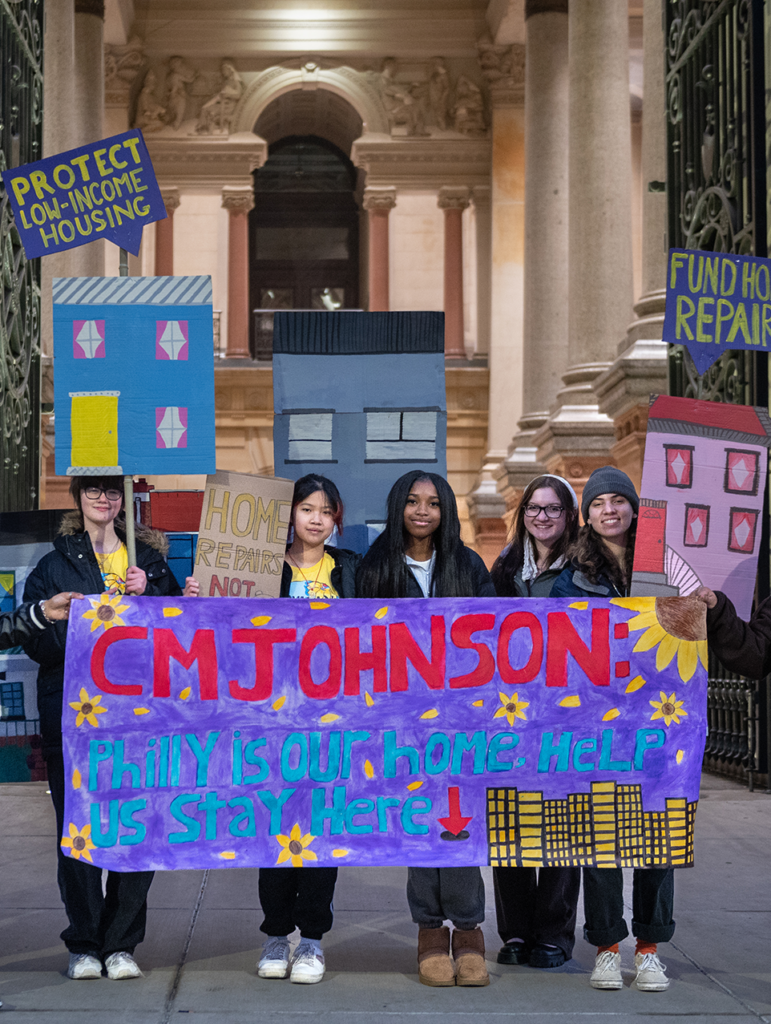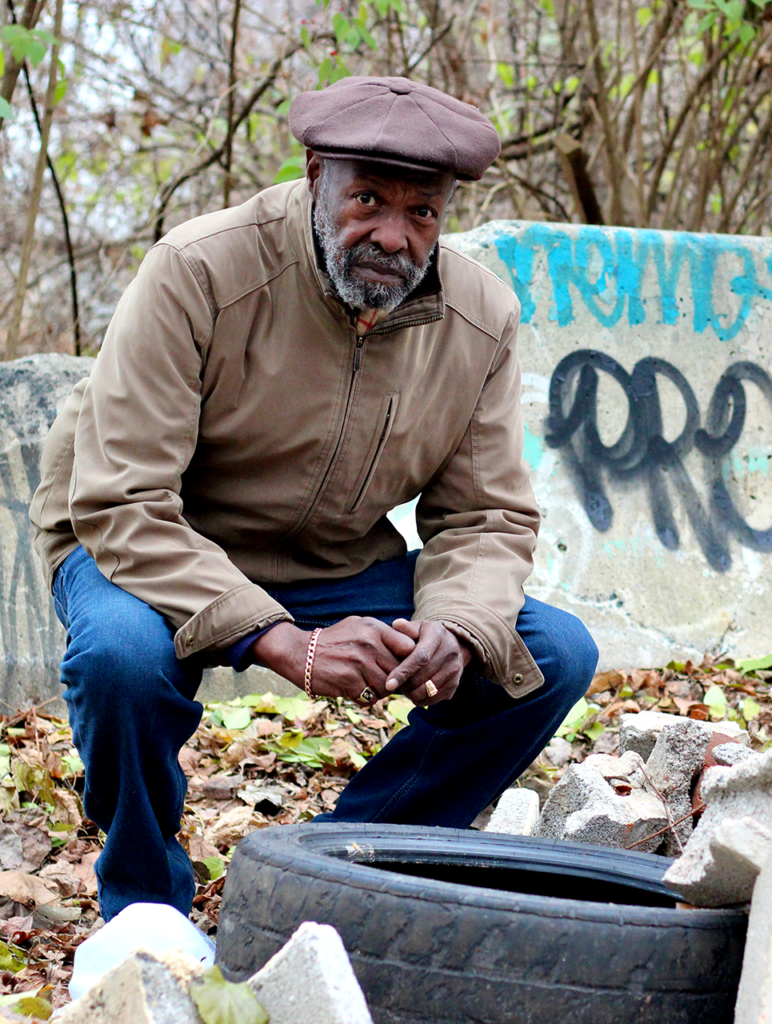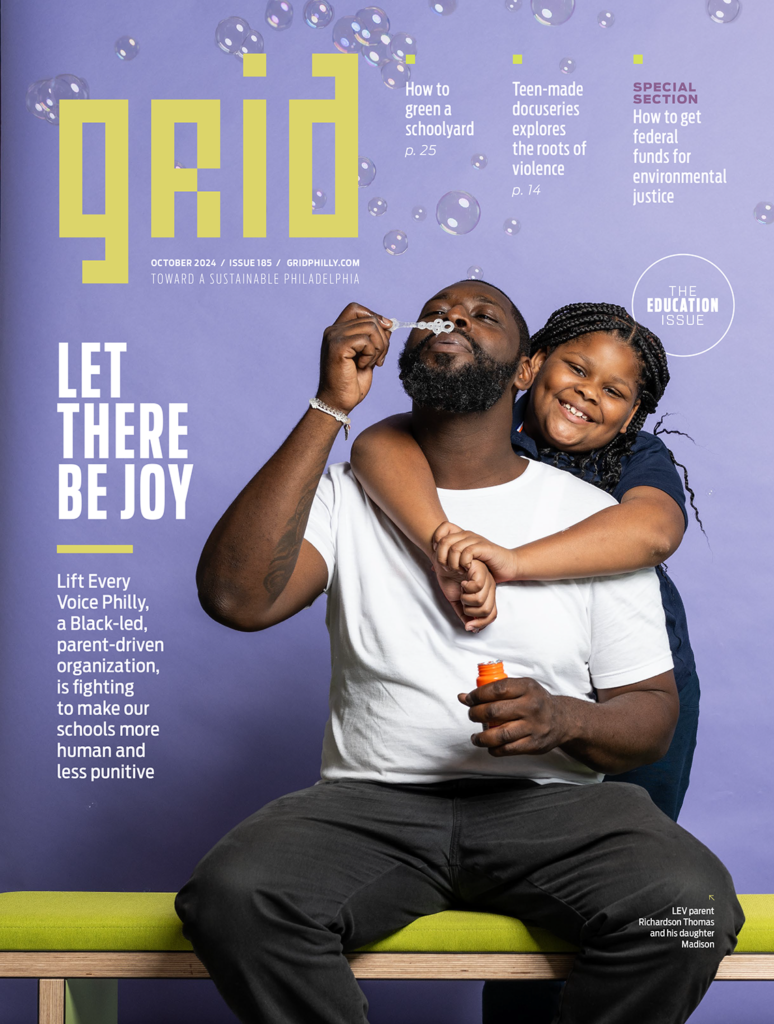When shootings skyrocketed in Philadelphia during the pandemic, teenagers were among those most affected. In the face of this crisis, students at Dobbins Technical High School in North Philly set out to unearth the root causes of the violence sweeping the city.
“Future Visions” is the result — an enormously affecting documentary series that follows students as they look for answers from community leaders and each other. The series traces the roots of violence and its connections to environmental injustice across the city, interviewing organizers, activists and other students at organizations like YEAH Philly, House of Umoja, Philly Peace Park, Soil Generation and The U School.
The documentary was born out of, and named for, Future Visions Lab, a grant-funded after-school program at Dobbins designed to teach leadership, critical thinking and media skills that ran from 2020 to June 2024.
“It really allows people to build a sense of community, to go deep,” Indy Shome, the Future Visions Lab faculty advisor told Grid, adding that the program aimed to turn what can be a “colonial, atomized approach to education into something with real-world application.” Students were paid $40 per hour, asked to identify an issue and given free rein over how to address it creatively. Gun violence was an obvious problem facing the city, but a student named Kayla Stanton had done a fellowship with Life Do Grow Farm over the summer. Her immersive experience there had taught her how connected social issues were to environmental issues, and from there the documentary began to take shape.
For Kameron Duckery, a former Dobbins student who joined Future Visions Lab his senior year, the documentary was a chance to bolster his résumé and take back the narrative from the news cycle, which he feels is largely propagated by people without direct experience with the issues kids are facing.
[Philly is] a hot mess right now. I think we’re in a time when people are desperate and need a lot of things that the City is not providing.”
— Kendra Van de Water, YEAH Philly
Their aim in the documentary, the students explain, is to present the problems facing the city as an interconnected whole, rather than discrete issues. Food deserts lead to inadequate nutrition, which leads to ill health and attention disorders. An underfunded educational system — 60% percent of Philly schools were found to have lead in their drinking water in 2022 and many do not have adequate air conditioning — lead to disaffected students and low graduation rates.
Shome helped the students start to make these connections. He says he sat down with students to figure out what activated them: what were they mad about, what scared them, what their hopes were. Soon, they were digging into property taxes. “They’re like, ‘Oh, wait — you get access to education based on your neighborhood. But if your neighborhood is violent, then your property taxes are going to be low and you won’t be able to get [access to good] education,’” Shome says. That got students “thinking on a systematic level that I think is not that common.”
Conversations with Soil Generation — a collective of Black and Brown women farmers featured in the documentary who are working to promote sustainable urban agriculture — also helped the class approach problems through a systems analysis, looking at “the whole house,” Shome explains, “not just the cracks in the floorboard.”
Borrowing a thought exercise he learned from the farmers, Shome asked students to consider the story of a hamburger. Down the block from Dobbins is a McDonald’s. “The students work there and the students eat there,” Shome says. As he puts it, the burgers they eat there may taste alright and they may only cost a few dollars, but it’s important to explore why. McDonald’s profits off of these young people, underpays them and contributes to chronic illness in the community.
“People don’t really think about how food affects behavior,” Brother Tommy Joshua Caison of the Philly Peace Park told students in the documentary. “Food with additives, it produces health problems … Black and Brown neighborhoods are closer to toxic dumps, they have less trees, they have poor air quality. All of these things are interrelated. Oftentimes people do talk about climate change in an abstract sense, but the front line is the neighborhoods.”
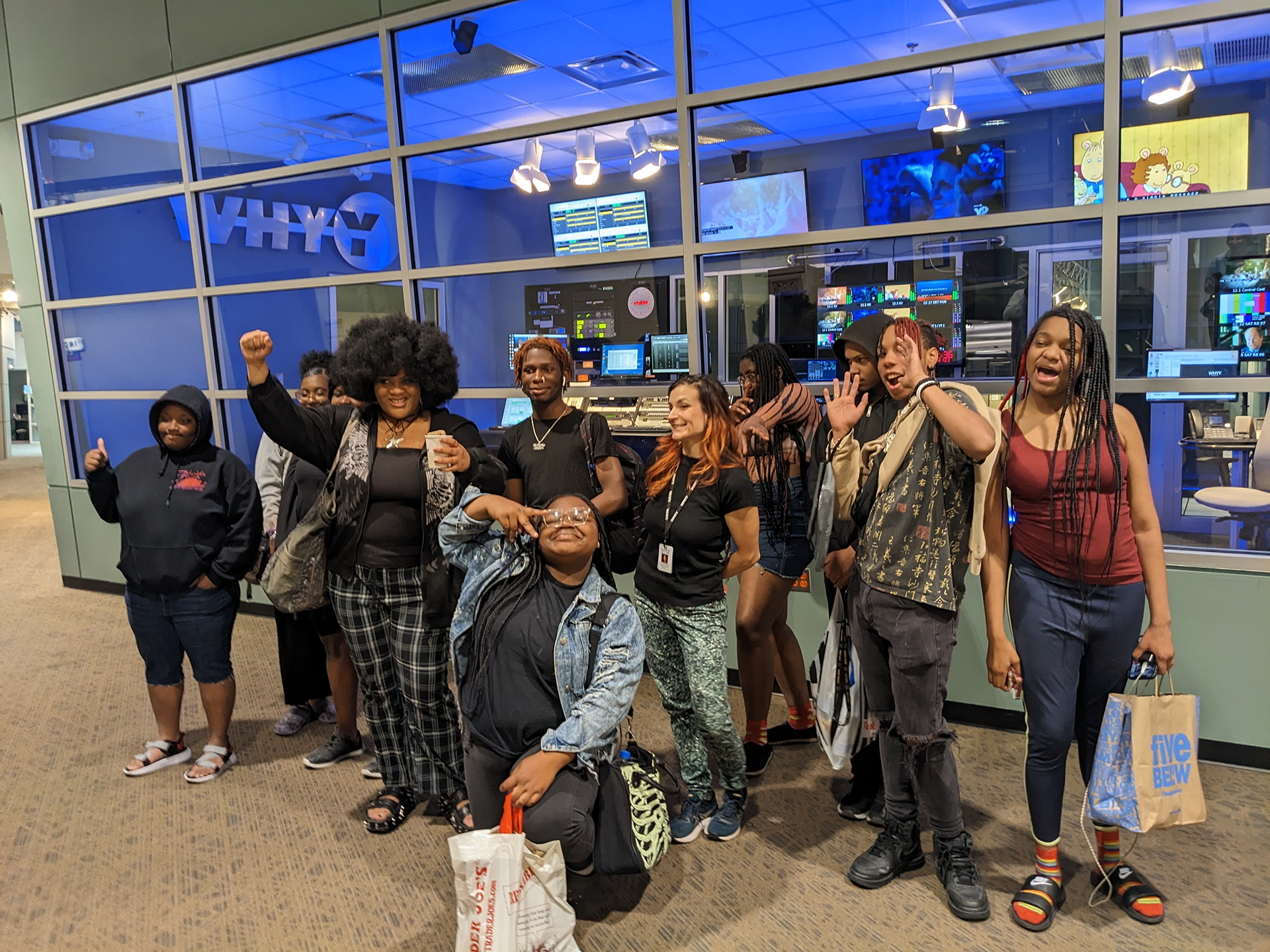
A hallmark of all the organizations “Future Visions” highlights is that they’re responsive, rather than prescriptive. Their approaches inspired the students; by the end of the documentary, they had created their own outdoor peace garden and an indoor hydroponic garden at Dobbins.
For example, YEAH Philly is a West Philly-based nonprofit that provides a haven for teens, aiming to reach kids others had given up on. Co-founders Kendra Van de Water and James Aye provide legal services, counseling services and tutoring, and pay teenagers to act as mediators and run a recording studio out of their basement.
“[Philly is] a hot mess right now,” Van de Water told Future Visions in the documentary. “I think we’re in a time when people are desperate and need a lot of things that the City is not providing.” Members come to YEAH Philly to learn anger management and conflict resolution, but other times they just play video games, do laundry and have a chance to get some decent food. “No matter where you’re from, folks come here and they feel safe,” Aye says.
Ultimately, Shome and the students involved in the project were recognized at The Philadelphia Citizen’s Citizen of the Year Awards. A few of the featured organizations organized screenings and the documentary is available to the public on YouTube. But the projects’ greatest impact may have been on the students themselves.
“It kind of broadened my horizon to the area around me,” Duckery says. “Whenever I would catch the bus I would see those parks — I knew those were peace parks, but I didn’t know what a peace park was until the documentary. I didn’t even know we had a garden [at Dobbins]. I was like, ‘What?’ It’s a small one, but it’s something.”


